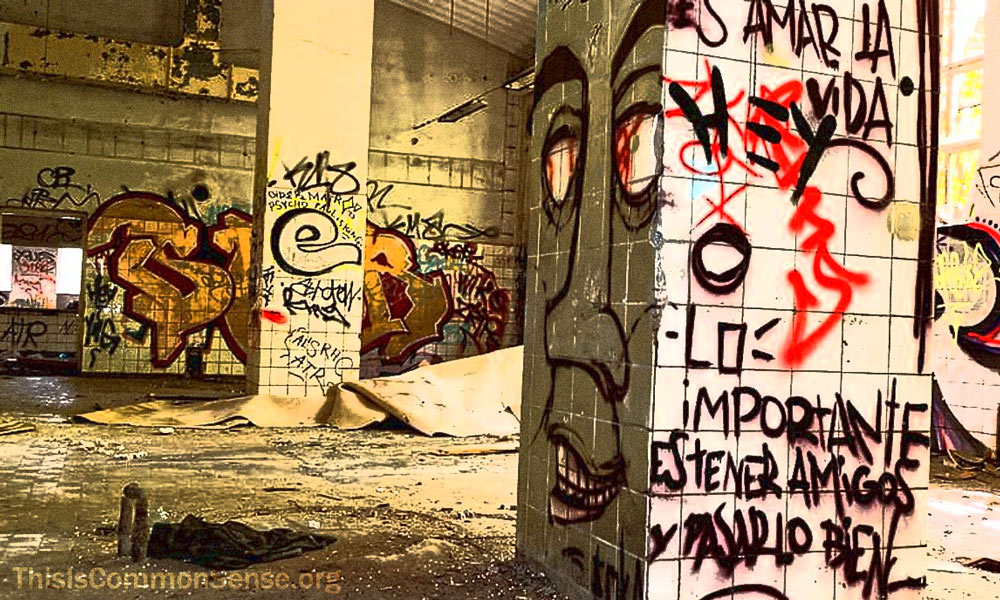Graffiti is theft.
That is how Heather Mac Donald puts it. “To a conservative,” she writes at City Journal, “graffiti is self-evidently abhorrent, a spirit-crushing blight on the public realm, and a theft of property by feckless individuals who avenge their mediocrity by destroying what others have built.”
But that is not how “liberals” or “progressives” see it, she goes on to explain, for they regard marking up buildings and subways and streets and sidewalks as a “political statement,” referencing the New York Times recent characterization of spray-painting on property you don’t own as “a courageous strike against stultifying bourgeois values” representing “urban grit and resistance to corporate hegemony.”
With each graffito, Ms. Mac Donald insists, progressives see an icon of “the city’s vibrant, anti-capitalist soul.”
An interesting political divide. But this rumination on the “taggers’” art is not random. Mac Donald is aghast that New York Mayor Bill de Blasio has cancelled a graffiti-eradication program.
This, she insists, will lead to more crime, worse crime than mere trespass paintings. It’s the Broken Windows idea, and she’s probably right. Allowing small crimes to go unchecked demonstrates a lack of respect for persons and property, and that trains a city’s population to go on to do worse things.
But the program was cut for a reason. You see, de Blasio’s disastrous coronavirus response has put New York into the red. The city has to cut somewhere.
Mac Donald, however, calls the $3 million saved a “rounding error” on the city’s $88 billion budget. She imputes to de Blasio and others a preference for crime rather than fighting crime.
Maybe. And maybe we add law and order to health and commerce as casualties of the pandemic panic.
This is Common Sense. I’m Paul Jacob.
—
See all recent commentary
(simplified and organized)
